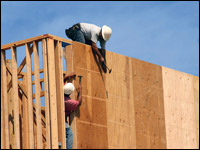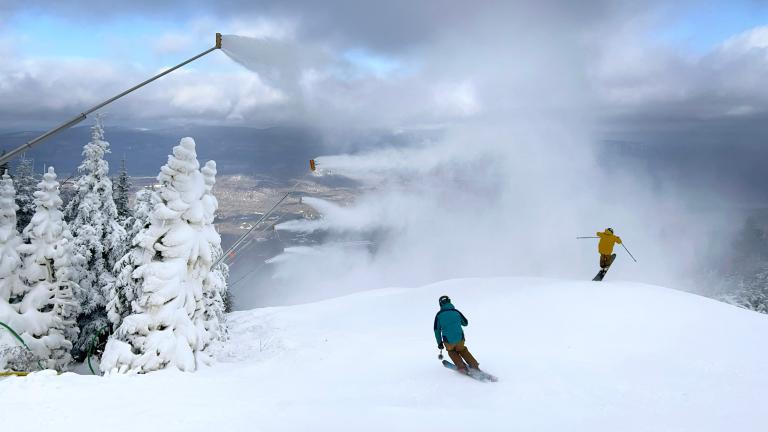Dear Umbra,
There seem to be plenty of good organizations accepting dollars to help the people of the Gulf Coast. But as The Nature Conservancy has said, “While current attention is rightfully focused on the immediate human toll and suffering of this tragedy, the ecological damage has yet to be assessed.”
The rebuilding effort, it seems, ought to occur in an environmentally sustainable way. Where can we direct our dollars to best advantage when the focus shifts?
M.Z.
Cleveland, Ohio
Dearest M.,
Katrina and the toxic soup left in her wake is yet more unneeded confirmation that what we do to our planet, we do to ourselves. It is likely that as the focus shifts to restoration and remediation, we will also receive unneeded confirmation of our obliviousness to the delicacy of ecosystems. Your question of how to help make a good future out of a bad past is an excellent one, and one that a lot of people are struggling with at the moment.

If I had a hammer …
While I’ve heard of admirable eco-efforts that are forming, there’s no single magical place to send money right now. But here are a few options to check out: Green Relief, Rebuild Green, Habitat for Humanity, the Sierra Club’s Gulf Coast Environmental Restoration Project, and the Coalition to Restore Coastal Louisiana.
We wish there were a magical place to send money — a collaborative entity making plans to counteract the shortsighted, business-as-usual rebuilding that has already begun. (Hello, Halliburton.) Because as Grist‘s own David Roberts put it when I bumped into him in the stacks last week, “There’s every reason to believe that the rebuilding effort on the Gulf Coast is going to become what Iraq has: a massive, wasteful boondoggle.” (David, as ye Gristmillers know, has quite a bit to say on this whole topic.)
So writing checks, while laudable, may not be enough in this instance. We need to speak up. We need to work with our political-action groups to agitate for consideration of ecosystems, full buy-in from residents, and a transparent process on the ground. We need to encourage the many environmental groups that are weighing in on this issue to collaborate. When I asked David what his call to action might look like, he had this couriered down to the basement:
“Each of these groups has their own ideas and initiatives around reconstruction, but such diffuse and stovepiped efforts will be small levees indeed against the tidal force of corruption and cronyism that already surges toward the Gulf Coast. A coalition along the lines of the Apollo Alliance should come together quickly and start flooding newspapers with editorials, TV stations with ads, members of Congress with letters, petitions, and calls. A bright spotlight needs to be thrown on the reconstruction effort, to drive out the kinds of greedy roaches that thrive in the shadows. If the American people are shown what’s being put together, and the alternatives, they’ll make the right choice.”
You heard him: roaches. Grist will continue to keep tabs on the Gulf Coast and how to influence recovery there, so keep an eye on us. And in the meantime, you know your action group of choice, so get on the phone, get your fingers tappin’, and get to work.
Spiritedly,
Umbra


